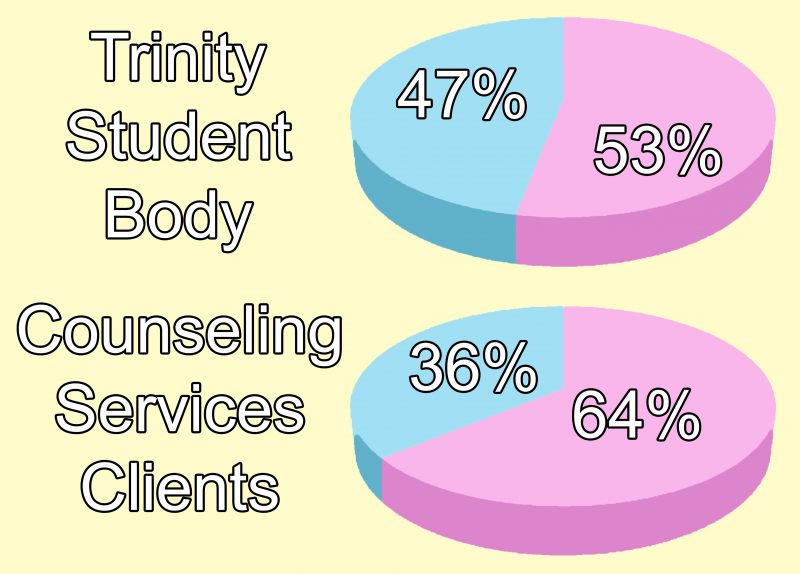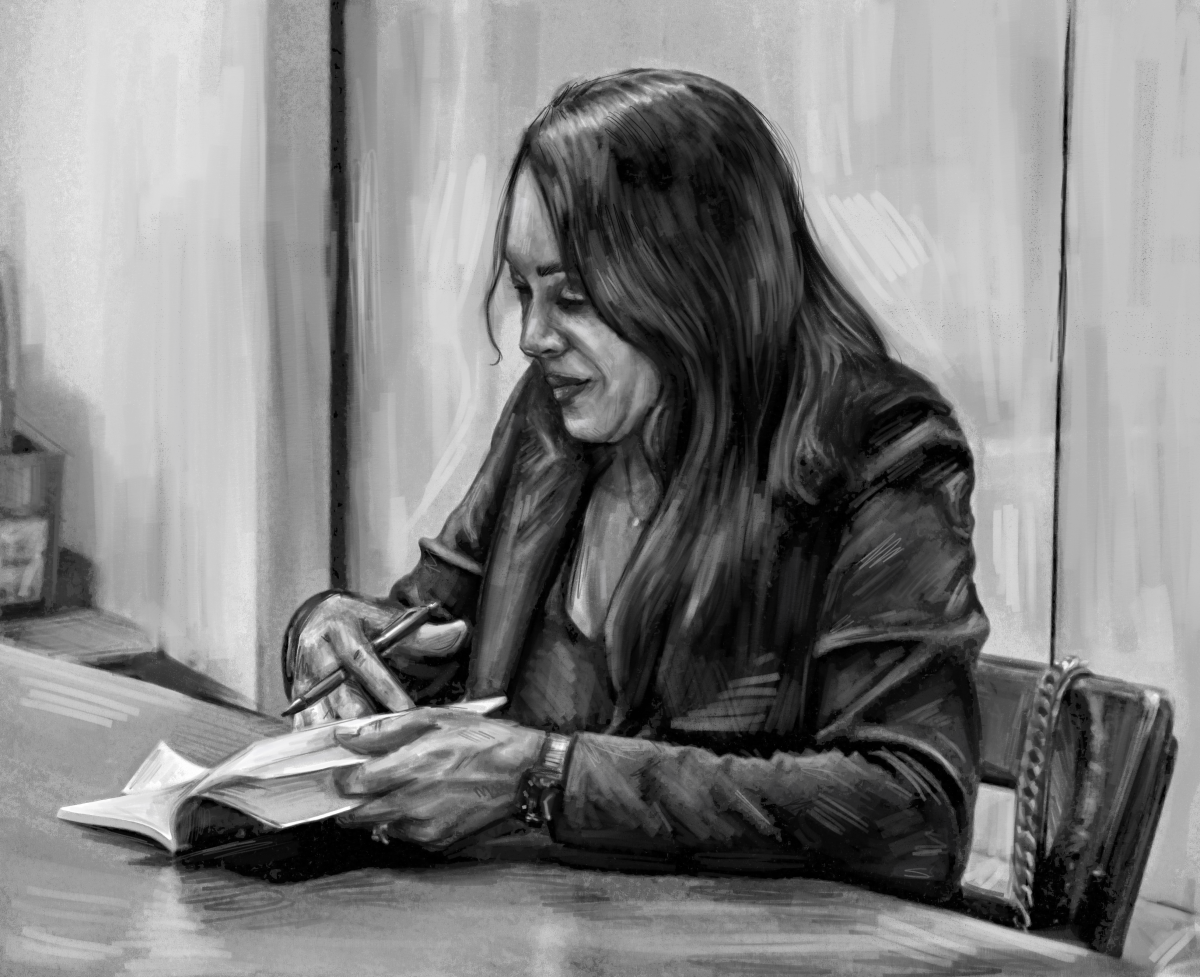During the fall 2017 semester, 64 percent of Counseling Services student clients were female. This is the same percentage given in the Center for Collegiate Mental Health’s 2017 Annual Report.
While the university has a relatively equal gender ratio — 53 percent of students are female, and 47 percent are male — women are more likely to go to Counseling Services. A reason for this may be cultural stigma against men seeking help with managing mental or emotional issues.
Richard Reams, associate director of Counseling Services, discussed reasons that men might be more reluctant than women to seek mental health support, citing upbringing as a key factor.
“I think the reason is that many of us men, as boys, we’re socialized to be tough, play hurt, to walk it off, don’t be a cry-baby, to take care of your own business. All of that is antithetical to going to the doctor or seeing a counselor,” Reams said.
Reams gave advice to students.
“I would encourage them to think of talking to a counselor as being somewhat analogous to working with a coach,” Reams said. “To use the athletics metaphor: there’s a problem, you haven’t been able to solve it on your own, so a coach — I think of myself as being an emotional or mental health coach — can help you step up your game emotionally and health-wise,” Reams said.
Despite cultural stigma against seeking help, many male students on campus have had positive experiences with Counseling Services.
Junior Philip Trenthem first went to Counseling Services during his first year to seek help with an interpersonal issue.
“I went because I felt like there were things happening in my life that were beyond my control, that I couldn’t solve myself, that I couldn’t talk to my family about,” Trenthem said. “That’s the main thing. It’s a problem that — if I were at home — I would be able to solve by other means, but because I don’t have the same social framework here, I decided to use Counseling Services.”
Trenthem first went to walk-in hours and then began to see a counselor regularly to discuss how to deal with things going on in his life.
“It started as one thing that made me go, and it ended up being multiple different things and just talking about my life,” Trenthem said.
Trenthem felt that the objective perspective of a counselor was useful in helping him approach his problems.
“I needed a third party perspective, and I wasn’t getting that from my friends,” Trenthem said. “So it helped to get a neutral point of view.”
Trenthem gave some advice to other male students considering whether to make an appointment with Counseling Services.
“It could change your life like it did mine, so don’t really hesitate if it’s something you’re thinking about doing,” Trenthem said. “Nobody has to know either. You could do it in secret if you’re worried about peer pressure or judgment, which shouldn’t happen on this campus but can happen. So you can try to keep it confidential.”
Junior David Menchaca went to Counseling Services to get advice about his decision to change majors.
“The very first time I went to Counseling Services was fall semester. My freshman year I came in as an engineering major, and — as we all know — engineering is a very difficult major,” Menchaca said. “So I was really struggling with the math and physics, and the anxiety and stress was getting to me. So that’s when I first started going.”
Menchaca eventually switched majors after seeing a counselor on campus. Though Reams theorized that the stigma of counseling is what repels men from visiting Counseling Services, Menchaca doesn’t think that stigma affected him greatly in making his decision to go.
“I knew that I needed help, and that was the place to get it,” Menchaca said. “So I had no qualms about going there, but I can see how stigmas against males and mental illness and seeking help and being open about their feelings would dissuade others from getting the help that they need.”
First-year Nash Evans went to Counseling Services recently for help with insomnia.
Initially, Evans was reluctant to go because he thought his insomnia wasn’t serious enough to be a problem.
“I wasn’t super worried about going, but I wasn’t going for a while because I thought I could kind of get over the insomnia myself,” Evans said.
Evans found Counseling Services to be helpful in dealing with his insomnia.
“It definitely helped me with my insomnia a little bit,” Evans said. “They gave me some helpful exercises to do. It might be worth going back sometime, but at the moment, insomnia hasn’t been bothering me very much.”
Senior Samuel Steup talked about his experience with Counseling Services.
“I mean, there is a little bit of hesitation or reluctance,” Steup said. “Even now there’s a little bit of uncomfortable feeling just walking in and being like, ‘OK, hey, I’m here because I’ve got issues.’ … Then you get into the hallway of Counseling Services, and it’s like, ‘OK, this is good for me.’ ”
Students can make walk-in appointments with Counseling Services on any weekday afternoon between 1:00 and 4:00 on a first-come, first-seen basis. More information can be found on Counseling Services’ official webpage.








